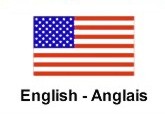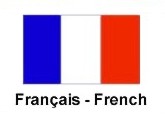French group visits campus

The group of Feves, France citizens join
K-Staters for a group photo at the WWII Memorial while on their 12 day visit of America.
(Evert Nelson - The Collegian)
A new chapter was written today in the sisterhood between the Kansas town of Morganville and the French town of
F�ves, as a contingent of 20 F�ves citizens made its first group visit to the U.S. in the history of the towns�
relationship, visiting Manhattan and Morganville.
For many of the visiting F�ves citizens, the visit was highly emotional. The town of Morganville played an
instrumental role in the rebuilding of F�ves after World War II. Three of the visitors were direct recipients of
the aid during their childhoods.
�I think it�s very important for us to reconnect a little bit with the States,� Francis Pracht, citizen of F�ves,
France, said. �It�s important to remember the war and the events after it. The young people, they don�t know, or
they don�t care about this history, and I think it�s important to refresh that for them and to tell them what
happened.�
Pracht also said that the history of the towns can teach current and future generations about the spirit of giving.
�When you see what is happening in the world at the moment, we need to remember that it happened at our home also,�
Pracht said. �With the big problem in Europe involving the sudden surge of refugees, it�s important to remember the
help that we received from these strangers.�
The delegation toured campus Thursday morning, starting with a visit to the campus World War II memorial. Greeting
the group at the memorial were provost and senior vice president April Mason, Andrew Orr, assistant professor of
history; Birgit Wassmuth, director of A.Q. Miller School of Journalism and Mass Communications; Gloria Freeland,
assistant professor of journalism and director of the Huck Boyd National Center for Community Media; and Art Vaughan,
historian of the Morganville-F�ves relationship.
�I want to welcome you to Kansas State University,� Mason said the group at the World War II memorial. �Out of
tragedy and adversity comes collaboration and friendship. We�re here to commemorate that and open a dialogue of
friendship between Morganville and F�ves.�
Vaughan and Freeland played a significant role in the visit, as the couple traveled to F�ves earlier this summer and
helped raise funds for the trip.
�I think it�s important for the group to feel the atmosphere at K-State and to see how friendly we are,� Freeland
said. �It makes the connection more real for them to actually meet people from Kansas.�
The group arrived in the U.S. earlier this week, visiting several different sites on the east coast before flying
to Kansas City Wednesday, where they toured the Harley-Davidson factory and World War I memorial before visiting
Manhattan on Thursday.
After a tour of the campus, the delegation visited Morganville and the various historical sites in the town. They
will travel back to Kansas City to fly home early this morning.
During the visit, Vaughan recounted the history of the connection between the two towns, much of which is available
on the website he runs dedicated to the documenation of the Morganville-F�ves relationship.
Vaughan said that the relationship between the towns goes back to 1948, when the French town, ravaged by the effects
of World War II, was in need of humanitarian aid, as well as funds for the reconstruction of the town. Approximately
75 percent of the town was destroyed by the war, according to a 2013 Topeka Capital Journal article.
Across the ocean, a small Kansas town by the name of Morganville was emotionally moved by the plight of the many
cities and towns across the world that had been hurt by the war. Despite a population of only 250, Morganville felt
the need to assist the worldwide effort to rebuild in any way possible.
According to Vaughan�s website, Morganville�s chance to help came when the United Nations Educational, Scientific
and Cultural Organization, an international program created to foster relationships between towns on a global scale,
sought American towns for these relationships immediately after World War II. At the national level, the program was
headed by Milton Eisenhower, former K-State president and brother to U.S. President Dwight D. Eisenhower.
After considering towns in Holland, Germany and Italy, Morganville finally decided on the French town of F�ves, a
rural town, chosen for its striking similarity to Morganville. Out of the 200 American towns that participated,
Morganville was the smallest, but this did not stop the Kansas town from their fundraising efforts, according to an
article in the Topeka Capital-Journal article.
To raise funds, the citizens of Morganville held a festival, which they named the One-World Peace Festival. According
to a Nov. 2013, Topeka Capital-Journal article, the pageant recounted the town�s history up until the point of the
beginning of its relationship with F�ves.
Vaughan said the pageant marked the beginning of a cultural relationship between the towns. In addition to the
charitable gifts and aid sent to F�ves, the towns exchanged several cultural items as well, including paintings,
clothing and letters.
After F�ves was rebuilt, the towns� relationship dwindled until 2013 when students in Freeland�s �News and Feature
Writing� class discovered the sister-city relationship during a class assignment. The students reached out to
Gerard Torlotting, nephew of Henri Torlotting, the schoolmaster in charge of distribution of the donated supplies.
The assignment culminated in a visit by the Torlotting family to Morganville in December 2013.
The visit encouraged a renewed sense of sisterhood between the cities, and plans are being made to unite the towns
in a more substantial way. Wassmuth said the A.Q. Miller School of Journalism and Mass Communications is looking
into academic opportunities for students within the towns� relationship.
�We are looking forward to growing this relationship into some kind of partnership for a student exchange program,�
Wassmuth said.

